BOOK AN APPOINTMENT
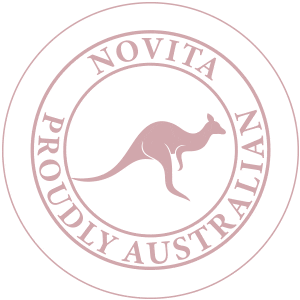

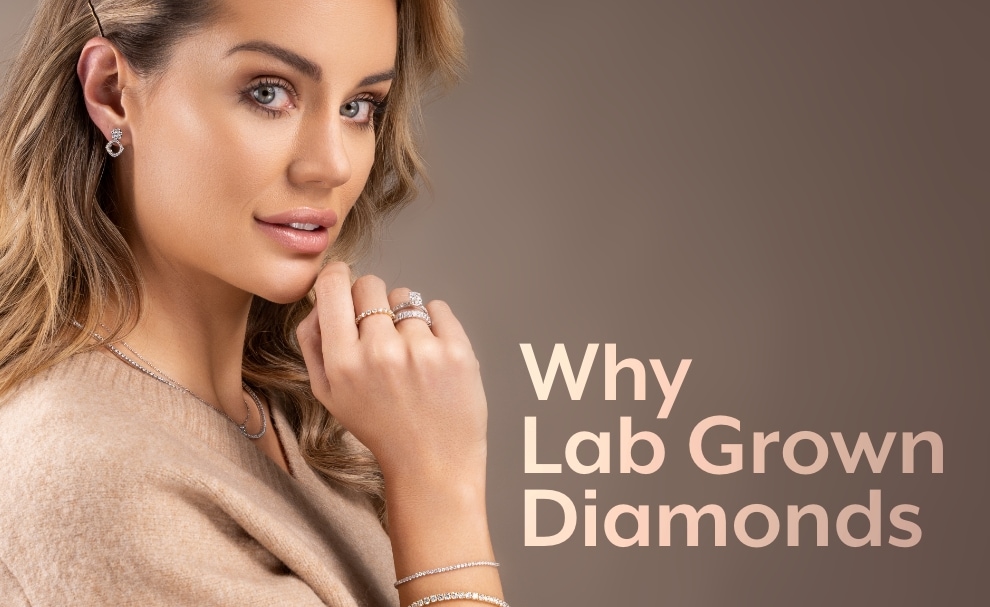
 “[Lab created diamonds] are not fakes. They’re not cubic zirconias. They have all the same physical and chemical properties of a mined diamond.”
“[Lab created diamonds] are not fakes. They’re not cubic zirconias. They have all the same physical and chemical properties of a mined diamond.”
 "Mined diamonds are a gift of nature whereas man made diamonds are a gift of human wisdom.”
"Mined diamonds are a gift of nature whereas man made diamonds are a gift of human wisdom.”
 “[Manmade] diamonds are diamonds.”
“[Manmade] diamonds are diamonds.”
Lab grown diamonds offer tremendous value and are more affordable than mined diamonds of comparable size and quality.
Lab grown diamonds sell for up to 75% less than mined diamonds, owing to the lower expenses of the mining process, a shorter supply chain, and a more competitive market.
That said, it does not mean that man made diamonds are “cheap”. are “cheap”. In fact, the cost of production is comparable between mined diamonds and lab grown diamonds. The process of cutting, polishing, and certification also carries a similar cost whether they be mined or lab created diamonds.
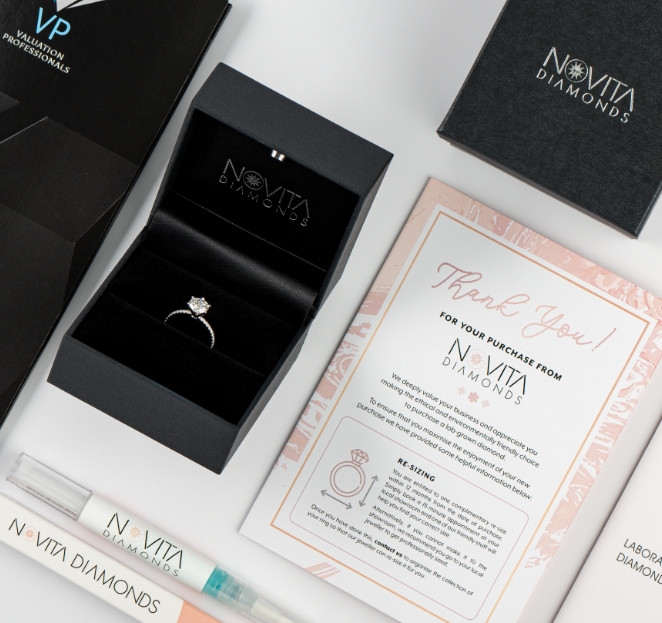
It is a known fact, only Lab grown diamonds can be considered as truly ethical diamonds in the market, if you would like to buy an ethical engagement ring, the only choice is to buy a mine free diamond, in other words an ethical lab diamond. This is one of the biggest reasons that we moved to lab grown diamonds in Australia as we know how extensive the social and environmental effects mines have on our planet as well as communities and society.
The Frost & Sullivan report found that "lab grown diamonds are seven times less impactful to the environment than mined diamonds, use significantly fewer resources and emit a fraction of the air pollution.” Lab grown diamonds by Novita Diamonds are guaranteed to be 100% conflict-free providing you with peace of mind as we try and stay environmentally and socially friendly in all our options. All of our diamonds are naturally ethical lab grown diamonds, therefore we only produce ethical engagement rings made with ethical lab diamonds.
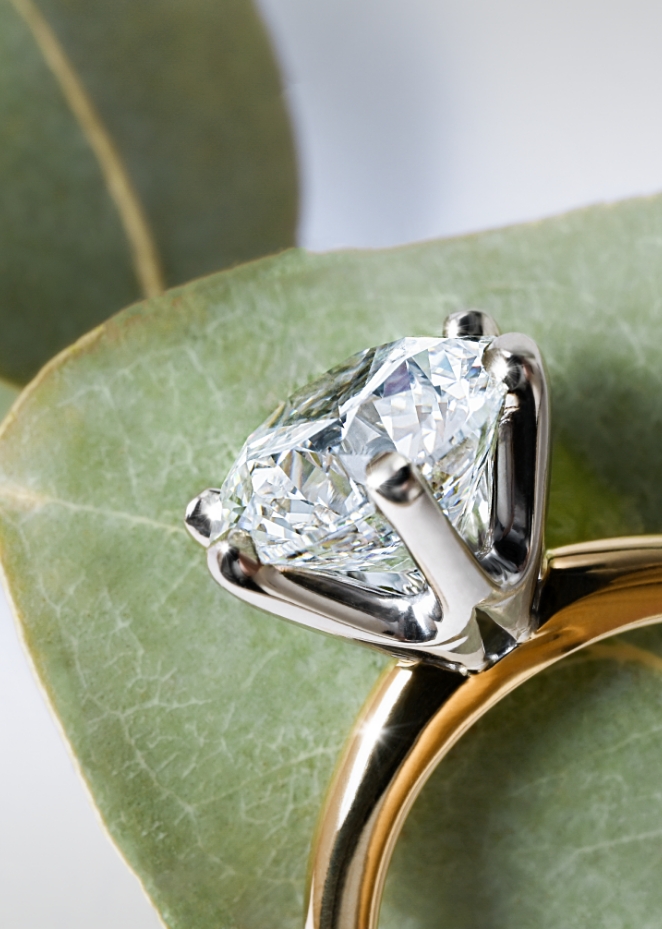
Man made or lab grown diamonds have the same physical, chemical, and optical properties as mined diamonds.
The only difference between a the two is their origin. A grown diamond is “grown” inside a lab using innovative cutting-edge technology that replicates Earth’s natural formation process by crystallising carbon into a brilliant diamond.
Lab grown diamonds are indistinguishable from their natural counterparts; side by side they are identical. Even when using a jewellery 10x Loupe, lab grown diamonds are nearly impossible to differentiate from natural diamonds.
The only way to differentiate between the two is to use specialised equipment to measure the level of impurities found in natural diamonds which is not present in lab grown diamonds.
All Novita Diamonds are Type IIA and Type II which are the purest form of diamonds, very rare in nature, and are the cleanest type of diamonds since they are 100% carbon and do not have any impurities such as nitrogen. This makes them stronger and clearer than 98% of mined diamonds.

Diamonds are the best option for engagement rings and precious jewellery. Regardless if they are from a lab or a mine, diamonds are one of the strongest materials known to science. As a result, they are ideal to wear for life and pass on to future generations as they will always hold their beauty. This differs from diamond simulants such as cubic zirconia and moissanite, where the quality is nowhere as close as that to diamonds allowing them to easily scratch, chip, and lose their shine as well as being heavier and therefore more uncomfortable to wear.
For related articles, here are some search terms suggestions: ethical diamonds, ethical lab grown diamonds, ethical engagement rings and ethical lab diamonds.
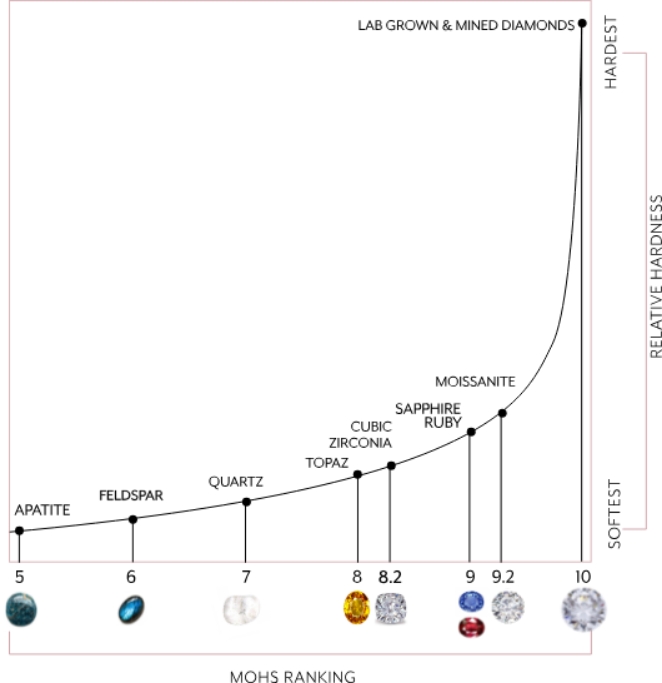
 FAQ'S
FAQ'SThere is no doubt that they are real diamonds. They are created using the same chemical and physical processes that happen naturally inside the earth but are grown in a controlled laboratory environment where a starter seed of diamond crystal gradually becomes bigger as more and more carbon atoms are deposited on it. Scientifically, lab made diamonds are exactly the same as natural diamonds chemically, physically, and optically. They are therefore considered to be real diamonds. The two leading authorities on diamonds, coloured stones, and pearls, IGI and GIA, both grade lab grown diamonds using the same scale and methodologies used on mined diamonds. Visit our lab diamonds guide to read more about this.
Diamonds grown in laboratories always cost significantly less than diamonds mined from the earth. The exact price difference will depend on various factors such as the size, quality, and specific type of diamond, but on average, lab grown diamonds are around 75% cheaper than natural diamonds. This is because the cost of producing rough lab stones is much lower than the cost of mining and extracting rough natural diamonds from the earth. In contrast, to become retail-ready, a rough diamond must go through all the same processes, including cutting, polishing, and certification, whether it comes from a mine or a lab. For example, on the massive savings you can take advantage of, a mined diamond costs $10,000, while an equivalent lab created diamond costs $2,500.
There is no difference between man made diamonds and mined diamonds; the same methods are used to test both diamonds as they are for natural diamonds. Both stones are chemically, physically, and optically identical, so they will exhibit the same properties and characteristics when tested. Among these are hardness, refractive index, thermal conductivity, and other unique characteristics of diamonds, whether they are mined or lab made diamonds.
Inclusions are also present in most lab diamonds, just as they are in natural diamonds. Inclusions are natural imperfections that are found within diamonds, and they can occur in both lab and natural diamonds. Inclusions can take many forms, such as tiny bubbles or carbon deposits trapped inside the diamond as it formed. Just like natural diamonds, most diamonds created in labs have flaws, and only very few become flawless. For more information about diamond clarity, check out our 4Cs guide.
Yes, you can insure it the same way you insured a mined diamond; lab gown diamonds in Australia are treated like mined diamonds, so they can be insured the same as mined diamonds. You can purchase insurance through your specialized jewellery insurance policy. Your insurance policy will typically cover the cost of replacing or repairing your ring if it is lost, stolen, or damaged. Understand what is covered and what is not by your insurance policy by reading its terms carefully.